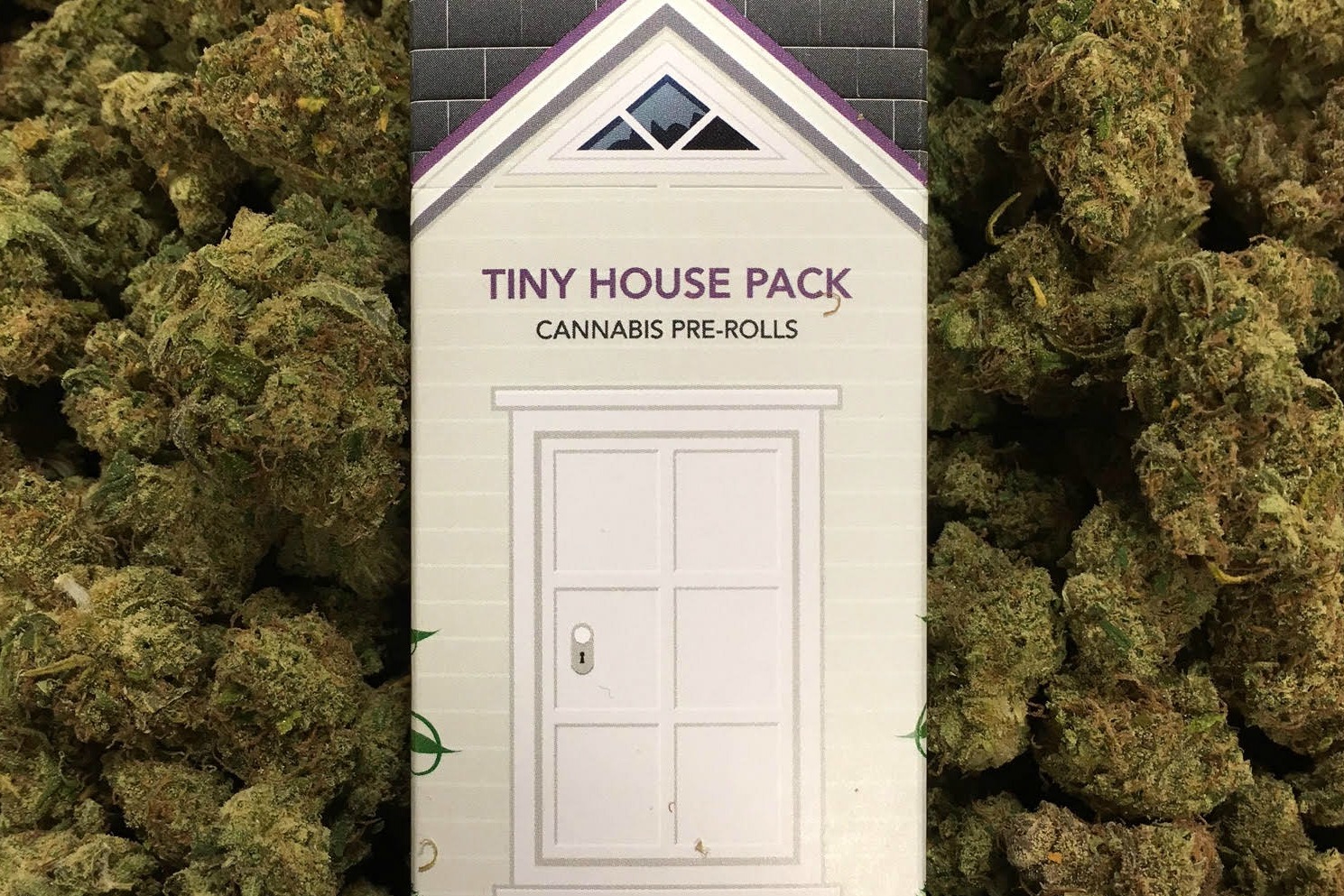Cannabis peddlers Solstice and Uncle Ike’s are selling new “Tiny House” packs of pre-rolled joints to help house the homeless. $3 from each $23 pack will go to the Low Income Housing Institute (LIHI) to build tiny houses at two of the three new homeless encampments that Mayor Ed Murray’s office just announced will open this spring. Each pack holds three grams of fresh-mowed ganja split into four pre-rolled joints, with a THC concentration of 24 percent and no CBD to speak of. As of the last one night count, there were at about 3,000 people sleeping outside each night in Seattle (at least).
From a press release:
“There’s no shelter that hides us from the homelessness in Seattle…It’s real, and it takes the whole of us to fix. Solstice and Uncle Ike’s have proudly partnered with LIHI to create a special Tiny House cannabis pre-roll pack, sold exclusively at Uncle Ike’s 23rd & Union and Capitol Hill locations. A portion of proceeds will go directly to the Tiny House program, aimed at providing affordable housing to Seattle’s homeless.”
According to LIHI director Sharon Lee, Solstice produced an initial run of 2,500 Tiny House packs, which if and when sold would send $7,500 to LIHI—enough to build three tiny houses at $2,500 apiece. Over the course of the coming year, Lee says, they anticipate selling enough Tiny House packs to buid 12 tiny houses. Ike’s owner Ian Eisenberg says he and his staff will build and donate another tiny house, and so will Solstice. The total number of tiny houses needed for both new encampments is 100. Lee wrote via email that YouthBuild, Seattle Vocational Institute, Tulalip Tribes, Sawhorse Revolution and other groups are already building some tiny houses, “but we need to build 20-30 more houses quickly!” as winter sets in.
As we’ve reported in the past, tiny house villages already exist in Seattle, for example in Ballard and the Central District. They’re a cheap, quick way to get our city’s poorest residents into something like regular housing, and create stability and community both for residents and neighbors.
Philosopher Slavoj Zizek has criticized marriages between consumption and charity such as the Tiny House packs as a way of buying forgiveness for one’s complicity in the economic system that creates the need for charity in the first place. For example, he says, in the Starbucks Shared Planet Program, part of the cost of a cup of coffee went to pay for fair trade and ecologically sustainable coffee farming practices. “You don’t just buy a coffee,” he says. “In the very consumerist act, you buy your redemption from being only a consumerist.” As a counterexample to this veiled complicity, Zizek quotes Oscar Wilde: “The proper aim is to try and reconstruct society on such a basis that poverty will be impossible.”
On the other hand, there’s nothing that says you can’t agitate for social reconstruction and smoke pot that pays for tiny houses for the homeless. Also, you can donate to LIHI here and/or sign up to volunteer here.








